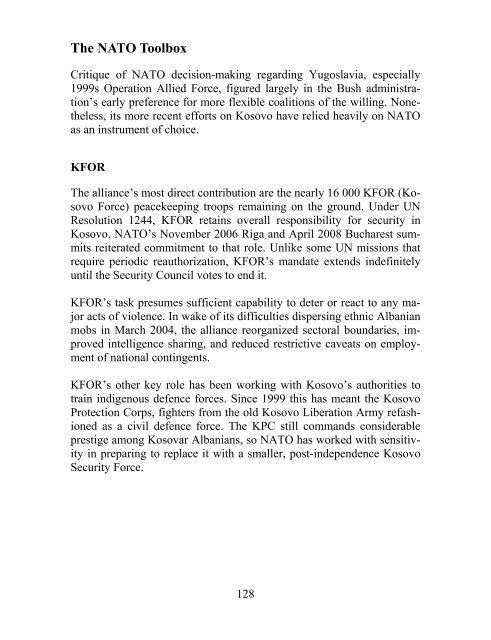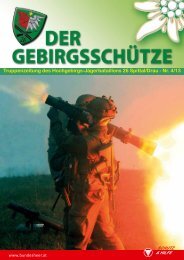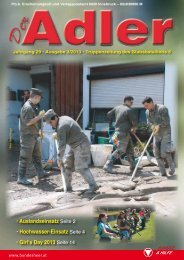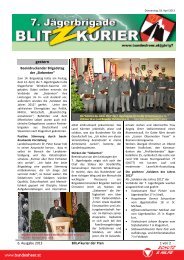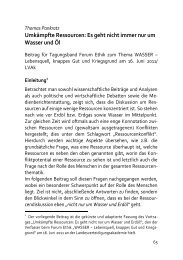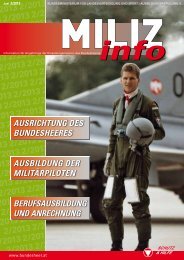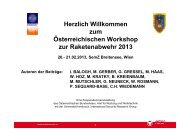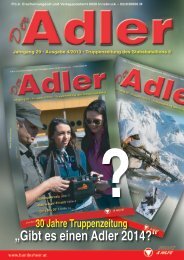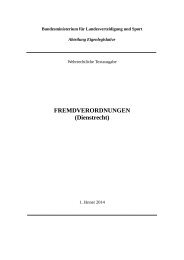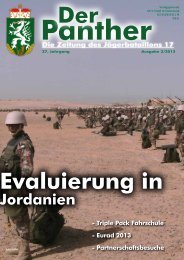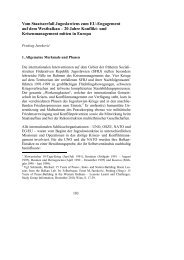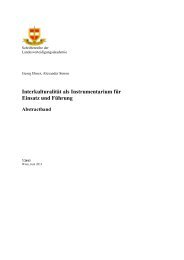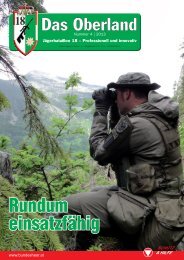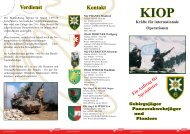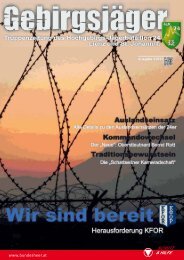Cutting or Tightening the Gordian Knot
Cutting or Tightening the Gordian Knot
Cutting or Tightening the Gordian Knot
You also want an ePaper? Increase the reach of your titles
YUMPU automatically turns print PDFs into web optimized ePapers that Google loves.
The NATO Toolbox<br />
Critique of NATO decision-making regarding Yugoslavia, especially<br />
1999s Operation Allied F<strong>or</strong>ce, figured largely in <strong>the</strong> Bush administration’s<br />
early preference f<strong>or</strong> m<strong>or</strong>e flexible coalitions of <strong>the</strong> willing. None<strong>the</strong>less,<br />
its m<strong>or</strong>e recent eff<strong>or</strong>ts on Kosovo have relied heavily on NATO<br />
as an instrument of choice.<br />
KFOR<br />
The alliance’s most direct contribution are <strong>the</strong> nearly 16 000 KFOR (Kosovo<br />
F<strong>or</strong>ce) peacekeeping troops remaining on <strong>the</strong> ground. Under UN<br />
Resolution 1244, KFOR retains overall responsibility f<strong>or</strong> security in<br />
Kosovo. NATO’s November 2006 Riga and April 2008 Bucharest summits<br />
reiterated commitment to that role. Unlike some UN missions that<br />
require periodic reauth<strong>or</strong>ization, KFOR’s mandate extends indefinitely<br />
until <strong>the</strong> Security Council votes to end it.<br />
KFOR’s task presumes sufficient capability to deter <strong>or</strong> react to any maj<strong>or</strong><br />
acts of violence. In wake of its difficulties dispersing ethnic Albanian<br />
mobs in March 2004, <strong>the</strong> alliance re<strong>or</strong>ganized sect<strong>or</strong>al boundaries, improved<br />
intelligence sharing, and reduced restrictive caveats on employment<br />
of national contingents.<br />
KFOR’s o<strong>the</strong>r key role has been w<strong>or</strong>king with Kosovo’s auth<strong>or</strong>ities to<br />
train indigenous defence f<strong>or</strong>ces. Since 1999 this has meant <strong>the</strong> Kosovo<br />
Protection C<strong>or</strong>ps, fighters from <strong>the</strong> old Kosovo Liberation Army refashioned<br />
as a civil defence f<strong>or</strong>ce. The KPC still commands considerable<br />
prestige among Kosovar Albanians, so NATO has w<strong>or</strong>ked with sensitivity<br />
in preparing to replace it with a smaller, post-independence Kosovo<br />
Security F<strong>or</strong>ce.<br />
128


